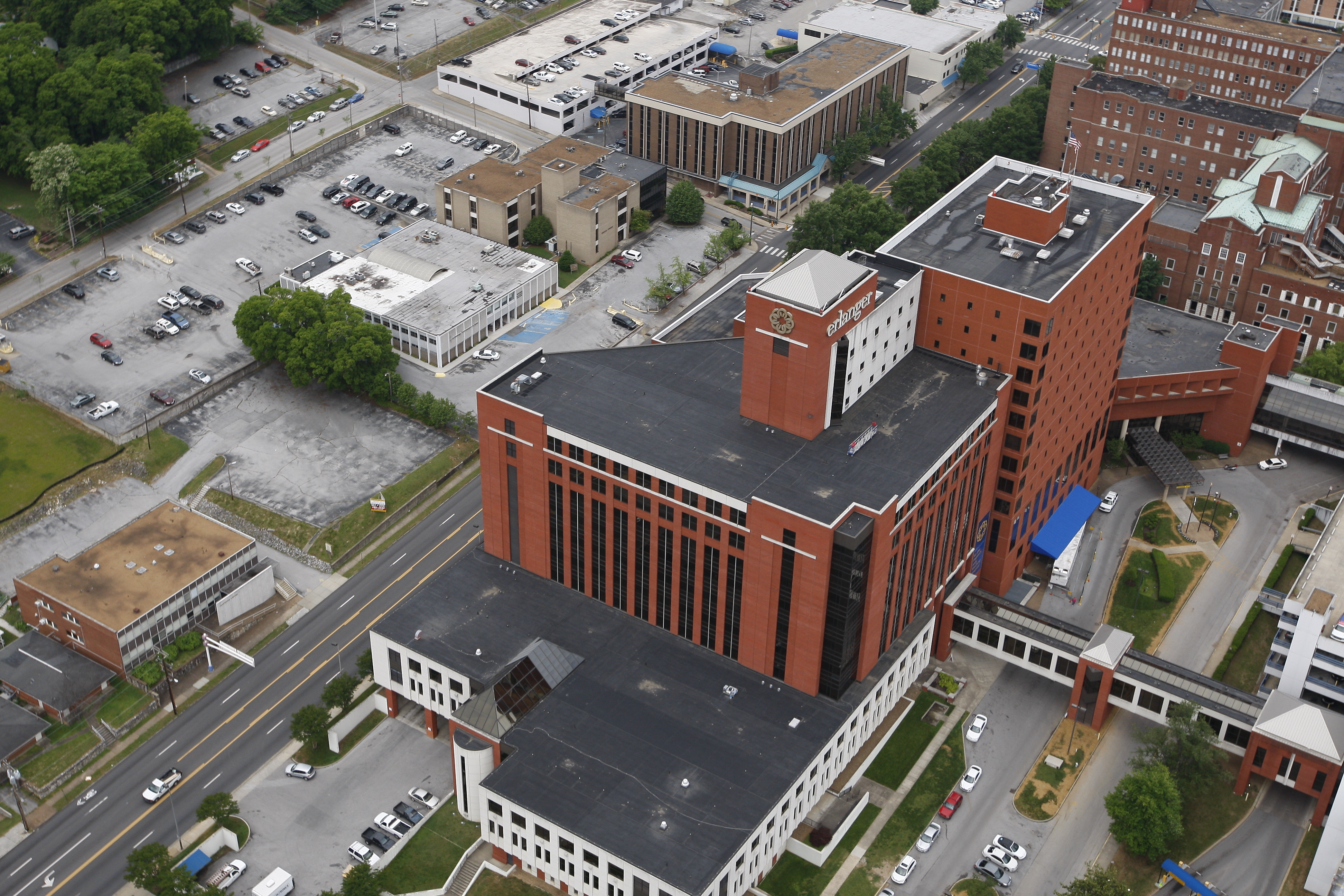The importance to the Chattanooga metro area of a healthy, independent and locally controlled Erlanger hospital can hardly be overstated. As the area's only major public hospital and Level 1 trauma care provider, Erlanger sets the standard of public care and levels the competitive playing field here with private and greedy nonprofit providers that shun a proportional share for indigent care. Yet it is plainly -- and painfully -- apparent that Erlanger hospital's future is in play and, at this moment, unclear.
On the one hand, Hamilton County's state legislators have been involved in a months-long discussion regarding a potential restructuring of Erlanger hospital's charter, but apparently without formal participation by Erlanger's board of directors. At the same time, a select few members of Erlanger's fragmented board have conducted a search for a new chief executive officer virtually on their own; other board members reportedly received the list of the three finalists just minutes before they were asked to rubber-stamp these nominees. Legislators have just asked the board to defer appointment of a new chief executive.
Illustrating a further divide, Erlanger's associated physicians also objected to the list of finalists because it omitted the interim CEO, Charlesetta Woodard-Thompson, who ran the main Erlanger campus for several years before the board released former CEO Jim Brexler, and who has helped turn around his fiscal mismanagement.
At a deeper level lies a larger dilemma about public-vs.-private control of Erlanger's governance, and its precarious fiscal condition.
Close observers cite the possibility, hopefully remote, that if Erlanger fails to resolve its fiscal dilemma, bond holders of its debt could swoop in and demand crippling asset sell-offs, further weakening Erlanger. Another concern is the possibility that some board members would put Erlanger under the influence, or eventual dominance, of the University of Tennessee's expansive Health Science Center and College of Medicine. The latter scenario reflects, in part, the unique payments -- more than $10 million a year -- that Erlanger makes to the College of Medicine for its resident physicians' program at Erlanger.
There is good reason to consider a fundamental change in Erlanger's charter and governance structure, though it's not clear yet whether that could be accomplished without a public referendum. It took a public referendum in 1976 to convey public control of the city-county owned Baroness Erlanger Hospital to the Chattanooga-Hamilton County Hospital Authority. Under that legislative act, the hospital has been guided by an 11-member board -- recently expanded to 12 members -- and county government was required to pay a minimum of $3 million a year toward the hospital's indigent-care costs. Those costs have soared in the past 35 years to more than $70 million, yet county government cut its payment two years ago to $1.5 million after the city let the city-county sales tax agreement expire.
Regular changes in the chief executive's office over the past two decades -- along with weak and excessively large and fragmented boards composed of political appointees -- have worked mainly to diminish capital investment in the hospital, to raise executive compensation, to tolerate mediocre benchmarks and leadership, and to diminish Erlanger's competitive standing against Memorial Hospital.
Though Memorial technically operates as a nonprofit charitable hospital under a 501(c)(3) charter, it has effectively delegated the bulk of the community's costly indigent care to Erlanger, while focusing intensive capital on more profitable lines of care, particularly heart and cancer centers and lucrative surgeries. Now a part of a 70-hospital Catholic chain based in Denver, Memorial has declared its chief goal to be a larger profit-provider to its out-of-state corporate headquarters.
Given all these circumstances, Erlanger's best option may well be a conversion to a similar nonprofit charitable entity, governed by a smaller, more cogent and more expert board. This is precisely the type of self-sustaining board that the county's legislators are now considering.
Critics of such a change reasonably fear the loss of larger public control of the board and more transparent operations. Those are legitimate concerns. Regardless, similar boards over the EPB and the Tennessee Aquarium, as well as Memorial Hospital, appear to achieve better and more efficient performance in the public interest.
Whatever the outcome, the process of change at Erlanger should be transparent and allow sufficient public participation. The problems at Erlanger have occurred largely because of abuse of the public interest. What's going on behind closed doors right now contributes to that core problem.

